Premium Only Content
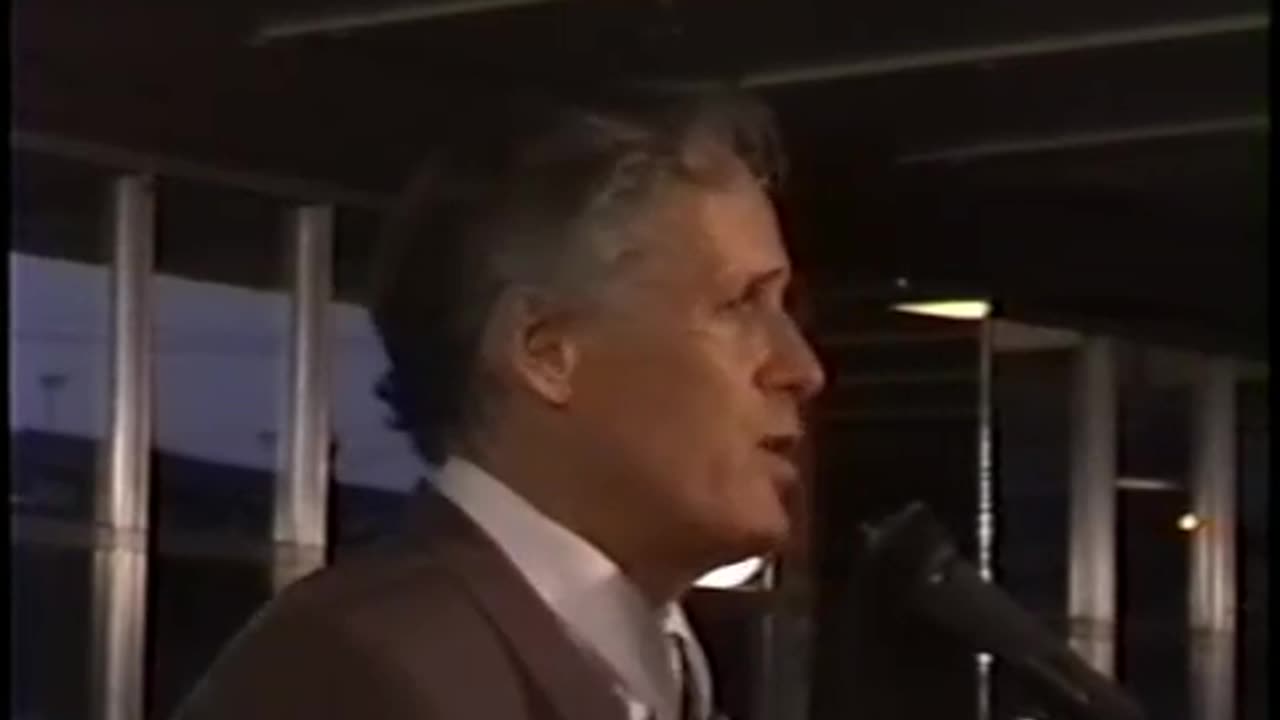
"Doug Christie: The Battle for Freedom of Speech" (3Sep2001) After Dinner Address, Cincinnati Ohio
"Doug Christie: The Battle for Freedom of Speech" Labor Day, After Dinner Address. Final Speaker @ David Irving's "Real History Conference 2001" - Aug. 31 thru Sep. 3 2001 @ The Marriott Hotel in Cincinnati, Ohio.
The Journal of Historical Review Costa Mesa, Sept.-Dec. 2001 -- Vol. 20, Nos. 5-6 -- pages 6-8
'REAL HISTORY' IN CINCINNATI
"David Irving's Successful Conference"
by Mark Weber
WITH a robust attendance and informative, stimulating addresses, David Irving's third annual "Real History" conference was a roaring success. About 150 persons, most of them from the eastern and central United States, and a few from as far away as Australia, met over Labor Day weekend -- Friday, August 31, through Monday, September 3 -- at a large, first-class Marriott hotel in Cincinnati.
Irving, the conference organizer and host, was the central figure of the four-day event. The well-known British historian also delivered several talks himself and introduced and commented on the presentations of the other speakers.
In his opening night talk, "The Modern Plague: Historical Conformism," Irving expressed the hope that in coming years the term "conformist historian" will become a widely used epithet. On Sunday Irving spoke about Winston Churchill's secret wartime communications with President Roosevelt, exchanges that are dealt with in some detail in his Churchill's War trilogy.
In a Saturday lecture, "Hitler and the Final Solution: Are We Any Nearer to the Truth?," Irving cited copies of little known World War II documents that were also distributed to the attendees. Particularly noteworthy was a Dec. 1, 1941, order by Heinrich Himmler that, Irving said, apparently was issued following a stern rebuke by Hitler because of an unauthorized mass shooting of Jews the day before near Riga, Latvia, including several hundred Jews who had just arrived by train from Germany.
Writing to SS General Jeckeln, the SS and Police Leader for the large Ostland region that encompassed the Baltic lands and Belarus, Himmler ordered:
"The Jews resettled in the Ostland region are to be treated only in accord with the guidelines laid down by me or by the Reich Security Main Office. I will punish those who act on their own authority or in contravention [of the guidelines]."
Irving reported on his legal and financial struggles in an off-camera talk given on Monday. Even when speaking about the courtroom defeats in his well-publicized libel lawsuit against Deborah Lipstadt and her British publisher, the historian struck a confident and upbeat tone. He also spoke eagerly about his forthcoming legal battle against Gitta Sereny, whom he is suing for libel.
Churchill's War, vol.ii As if to prove his vitality and endurance in spite of legal setbacks, freshly-printed copies of the long-awaited second volume of Irving's Churchill's War trilogy were available for sale.
-Mark Weber's Address:
The first guest speaker to address the conference was IHR director Mark Weber. In his Friday evening lecture, he expressed particular appreciation for the opportunity to address, for the first time, a meeting hosted by Irving, especially given that he has had the honor of introducing Irving at a number of IHR meetings over the years. He also recalled his first meeting with Irving twenty-two years ago at the National Archives in Washington, DC.
Taking aim at the oft repeated Six Million figure of alleged wartime Jewish "Holocaust" victims, Weber pointed out that even before the end of the war, this figure was already a feature of Allied war propaganda. At the Nuremberg "International Military Tribunal" of 1945-46, Weber noted, the only basis for the familiar Six Million figure was the dubious November 1945 affidavit of Wilhelm Höttl, a one-time SS intelligence officer.
Weber went on to examine, and discredit, the flawed methodology and deficient "evidence" presented by Holocaust historians to support the Six Million figure, and he cited evidence to support reasonable estimates of between one and two million Jewish wartime deaths. [The full text of Weber's presentation appears in the Sept.-Dec. 2001 issue of the IHR's Journal of Historical Review.]
Other conference speakers included:
Tony Martin, professor of African-American studies at Wellesley College in Massachusetts (left, with Douglas Christie), who spoke about the Jewish role in the trans-Atlantic slave trade. He related how he came under tremendous fire for dealing with this emotion-laden subject in his classroom courses. It was the Jewish Talmud, Martin noted, that first provided supposedly a divinely inspired foundation for the contention that the slave status of Blacks was ordained by God.
Phillip Supina, professor of history at Shippensburg University of Pennsylvania, who reviewed Third Reich Germany's progressive policies in the fields of environmental protection, forestry management, humane treatment of animals, and public health. These measures, he related, were the most comprehensive and advanced in the world at the time.
Joseph Sobran, well-known conservative columnist and author, who spoke on "Lincoln, the Democrat Monarch." His after-dinner talk, sparkling with insights and observations collected in researching a forthcoming book, was delivered during a river boat cruise.
Michael A. Hoffman, independent revisionist writer, who showed an impressive knowledge of Jewish religious doctrine and history in his address, in which he detailed the hatred by Deborah Lipstadt and others like her for those whom they regard as enemies of the Jewish people.
Lipstadt and other Jewish activists, he noted, have repeatedly compared Irving and other non-conformist historians to "Amalek," the ancient symbolic personification of the eternal enemy of the Jews. (Hoffman's own report on the Irving conference is posted on his web site: www.hoffman-nfo.com)
Douglas Christie, Canadian attorney and prominent civil liberties activist, who gave a passionate address in defense of freedom of speech. In his after-dinner address, he reviewed a number of important free speech battles in which he had been involved, including the headline-making cases of Doug Collins and Ernst Zundel. Following Christie's talk, attendees were treated to a spectacular riverside Labor Day fireworks display.
Peter Kirstein, professor of history at St. Xavier University (Chicago), who provided an informative and eloquently delivered talk on the background and meaning of the August 1945 US atomic bombings of Hiroshima and Nagasaki.
"Triumph of the Will," the well-known film documentary of the 1934 National Socialist party congress in Nuremberg, was shown on Saturday afternoon. This path-breaking film work was made by the legendary Leni Riefenstahl, whose 99th birthday was celebrated on August 22.
Provan-Renk Debate
Two independent researchers, Charles Provan of Pennsylvania and Brian Renk of British Columbia (below far right, with Mr Irving), squared off on Sunday for a lively debate about wartime mass killings in gas chambers in the Auschwitz-Birkenau camp.
Irving and RenkMuch of the debate focused on some apparent "holes" in the ruins of the collapsed roof of morgue cellar (Leichenkeller) I at Birkenau crematorium (Krema) II. Both Provan and Renk presented enlarged transparency photos of these crude "holes," with steel reinforcement bars sticking out. Provan argued that these holes are the remains of carefully and deliberately made openings for pouring in Zyklon B to kill trapped Jews inside, while Renk expressed the view that these are merely coincidental "holes" that resulted from the explosive blowing-up of the structure in 1945.
To most attendees these jagged openings did not appear to have been carefully or conscientiously constructed. For example, none of the holes seemed to have a straight edge or smooth finish, which one would expect if they had been designed and built as an openings for pouring in Zyklon.
Provan readily acknowledged that many claims about Auschwitz are empty propaganda. He even expressed the view that the "holes" shown on enlargements of 1944 Allied aerial reconnaissance photographs of morgue cellar (LK) I at Krema II were drawn in, which suggests deceitful tampering with photographic evidence.
Provan and Renk also discussed the wartime investigations, and the postwar testimonies, of Konrad Morgen, an SS investigator whose bureau carried out hundreds of judicial inquiries into murder and other abuses in the wartime camps. Morgen and his SS colleagues brought some 400 fellow officers to trial [during World War II], of whom 200 were punished. Five SS camp commandants were arrested, and two were put to death for their crimes.
WITH Irving's permission, Weber briefly contributed to the debate. He noted that, as even anti-revisionist researcher Jean-Claude Pressac has acknowledged, the Birkenau crematory structures were woefully, even laughably, unsuitable and inappropriate as facilities for mass killings. Kremas II and III, Weber continued, were constructed in late 1942 and early 1943, and completed between March and late June 1943 -- that is, months after a decision had supposedly been made to kill hundreds of thousands of Jews in these facilities.
The official story these days, he went on, is that these Kremas were built as ordinary crematory facilities with morgues, but were later modified or adapted to serve as mass killing facilities. As Pressac has further acknowledged, not only Kremas II and III, but also Kremas IV and V, which were built even later, were not designed or built as mass killing facilities, and were at best only very awkwardly suited for this purpose.
Weber also spoke about Konrad Morgen, [the SS judge] about whom he had testified at some length in the second, 1988 Zündel trial in Toronto. Weber related his feeling of awe upon reading for the first time, at the National Archives in Washington, the original indictment brief drawn up by Morgen against Buchenwald commandant Karl Koch, who was executed by the SS for murder and corruption. Weber stressed that Himmler sanctioned Morgen's investigation and prosecution of camp commandants, even for murder of inmates. This included Morgen's investigation of Auschwitz commandant Rudolf Hoess. Weber stressed the difficulty of reconciling Morgen's work with [the existence of] a German extermination program.
Related items on this website:
Cincinnati conferences
Pictures of Cincinnati 2001 function
Michael Hoffman's report
Auschwitz index
The above news item is reproduced without editing other than typographical
Register your name and address to go on the Mailing List to receive
David Irving's ACTION REPORT
-
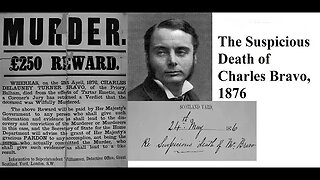 55:39
55:39
Truth Layden
1 day ago"Death in Balham - The Curious Case of Charles Bravo, 1876" (19April2025) Mark John Maguire
641 -
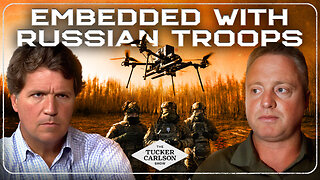 1:06:11
1:06:11
Tucker Carlson
3 hours agoPatrick Lancaster From the Frontlines of Ukraine/Russia War: Kamikaze Drones & Attacks on Christians
48.4K65 -
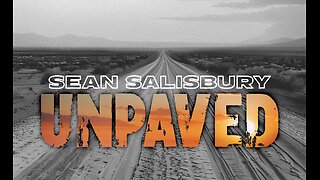 1:12:15
1:12:15
Sean Unpaved
2 hours agoDraft Drama: Shedeur Sanders' Drop, Star Scarcity, & Round 1 Highlights
14.5K2 -
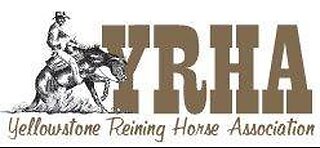 LIVE
LIVE
Total Horse Channel
14 hours agoYELLOWSTONE SLIDE I | FRIDAY
109 watching -
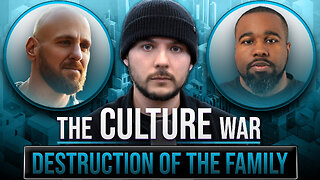 2:06:25
2:06:25
Tim Pool
3 hours agoFertility Decline & DESTRUCTION of the American Family | The Culture War with Tim Pool
112K107 -
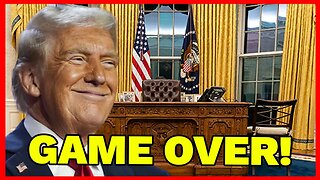 35:52
35:52
Stephen Gardner
2 hours agoTrump's MOVE Ignites DEM Civil War - Top Leader on CHOPPING BLOCK!
8.82K12 -
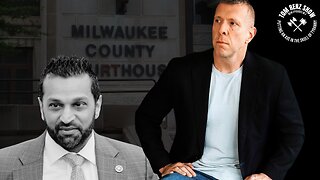 57:07
57:07
The Tom Renz Show
2 hours agoObstructionist Judge Arrested & Is India the New China for Trade?
11K2 -
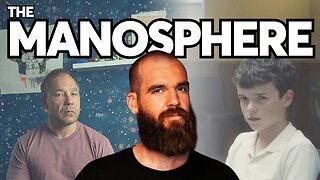 30:33
30:33
IsaacButterfield
10 hours ago $0.13 earnedWhy Is Everyone Talking About Netflix's "Adolescence"?
2K7 -
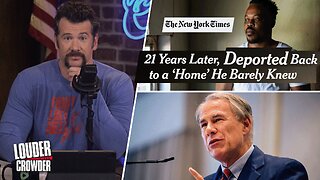 1:56:06
1:56:06
Steven Crowder
5 hours agoNY Times Goes Full Simp for Deported Jamaican Kidnapper
290K133 -
 1:26:56
1:26:56
Scammer Payback
2 hours agoCalling Scammers Live
19.4K3